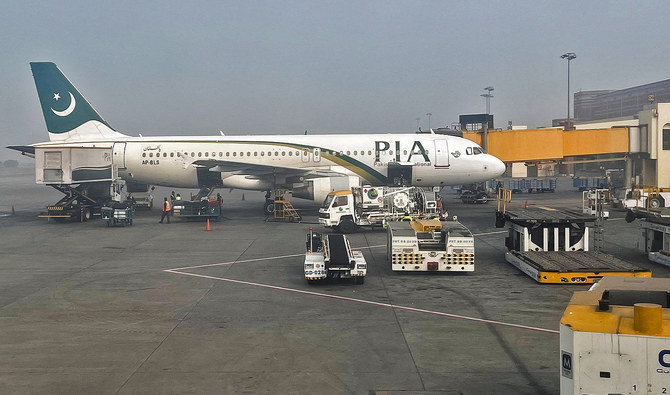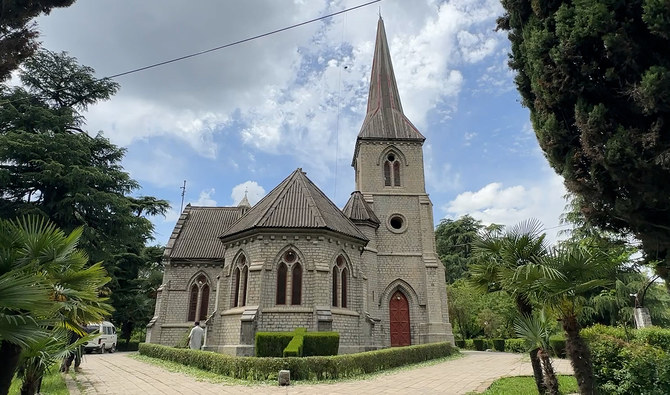KARACHI: A global credit rating agency said on Friday Pakistan’s external position was in significant stress after negotiations between the government and a visiting mission of International Monetary Fund (IMF) remained inconclusive after 10 days of interaction in Islamabad.
The IMF mission led by Nathan Porter visited Islamabad from Jan. 31 to Feb. 9 to hold discussions under the ninth review of the IMF’s $7 billion Extended Fund Facility (EFF) arrangement signed in 2019. The face-to-face dialogue ended without sealing the much-awaited deal on the stalled program, though the two sides agreed to resume their talks virtually from next week to come to a final conclusion over the release of $1.2 billion.
In a statement issued on Friday, Moody’s said the revenue-raising measures were likely be among prior actions the IMF would require from Pakistan.
“Pakistan’s government liquidity and external vulnerability risks are elevated, and there remains considerable risks around Pakistan’s ability to secure required financing to fully meet its needs for the next few years,” said the global credit rating agency’s statement quoted by Reuters.
A successful IMF deal will also unlock other crucial funding from governments and multilateral bodies. But the fiscal adjustments demanded by the deal are likely to fuel record high inflation, which hit 27.5 percent year-on-year in January 2023.
Speaking to reporters in Islamabad on Friday morning, finance minister Ishaq Dar acknowledged the government would need to levy new taxes.
“We will have to impose Rs170 billion fiscal measures,” he said while hoping these taxes would not burden the low-income segments.
Dar later led the Economic Coordination Committee’s meeting which approved an additional surcharge of Rs1 per unit of electricity to recover an estimated Rs76 billion ($282.81 million) in power sector liability.
The issue reportedly came up for discussion within the IMF talks as well, and the measure was taken to reduce the country’s circular debt which accumulates in the power sector due to subsidies and unpaid bills.
The IMF also said in a statement it welcomed Pakistan’s commitment to implement policies “needed to safeguard macroeconomic stability.”
The mission has given Pakistan the Memorandum of Economic and Financial Policies (MEFP), a key document indicating a movement toward a likely agreement with fiscal targets under the ninth review of the loan program.
Meanwhile, financial analysts said the implementation of prior actions would clear the way for the final staff-level agreement (SLA) which was important since the country’s official forex reserves had dwindled to $2.9 billion.
“Pakistan should ideally have signed the staff-level agreement with the IMF during the mission’s stay in Islamabad,” Dr. Khaqan Najeeb, former advisor to the finance ministry, told Arab News.
“However, it is hearting to see that at least some general consensus on the policies for the stabilization has been reached by the two sides,” he continued. “It is now essential that Pakistan goes through the MEFP documents and finalizes all clauses and moves ahead with prior actions mentioned to secure the SLA before the end of the current month.”
Najeeb said the actions were now well known and included changes to electricity and gas tariffs.
“If these are done in time, one may hope that a date for the IMF board approval for $1.2 billion can be set towards the end of March 2023,” he added.
Some analysts believed, however, the two sides were just trying to determine the modalities of the agreement by focusing on certain remaining areas that would be covered through virtual talks.
“I think consensus could not be reached on some of the things but it is not problematic,” Tahir Abbas, head of research at Arif Habib Limited, told Arab News.
He added that Pakistan was left with no other option and the government knew it needed to comply with the IMF conditions.
“There are certain areas where further discussions are to be held which will be virtual since the IMF mission is gone,” he continued. “However, it is expected that the Pakistani authorities and the IMF will reach a consensus on all remaining issues and the program will resume.”
Pakistan’s equity market, which posted gains on Thursday amid hopes of an agreement between the two sides, reacted negatively to the outcome of the Islamabad talks on Friday by shedding 724 points.
“Stocks fell across the board after the IMF team left without a firm agreement on the bailout program,” Ahsan Mehanti, CEO of Arif Habib Corporation, told Arab News.
He called for expedited efforts to deal with the fund amid fast depleting forex reserves while pointing out the IMF board approval was likely to take another month.
















